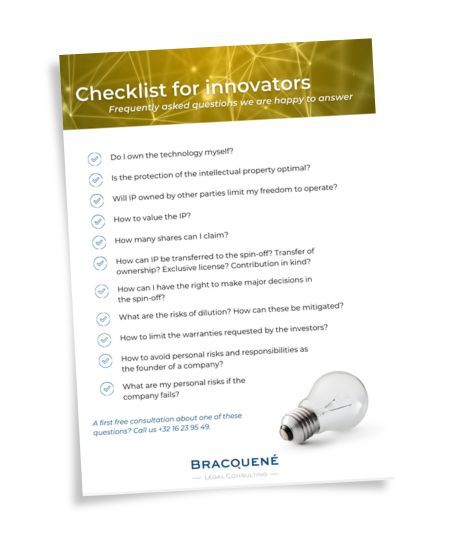Make the right choices for your start-up and spin-off
Is your start-up or spin-off struggling with questions about the value of your technology, or what’s the best structure for your business, or getting a fair return for all of the stakeholders?
And do you find yourself conducting negotiations about all this as a businessperson, researcher or scientist? In which case many of the arguments may go straight over your head. All those non-stop financial and legal questions! It’s a lot of specialist work. Bracquené brings you in-depth knowledge, surprising insights and well-founded solutions.
Frequently Asked Questions
Well thought out entrepreneurship for your start-up or spin-off is an area of expertise all its own. And Braquené is at the forefront of that expertise. Please consult with us about the possibilities for your business. But first, dive into our answers to your frequently asked questions.
Call Bracquené
How do you want to protect your intellectual property? The benefits for your company must outweigh the costs. Call in Bracquené. Our wealth of experience and years of insight will make it easier for you.
